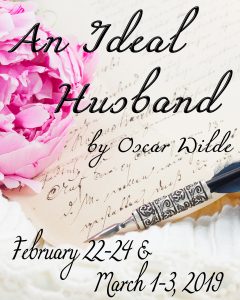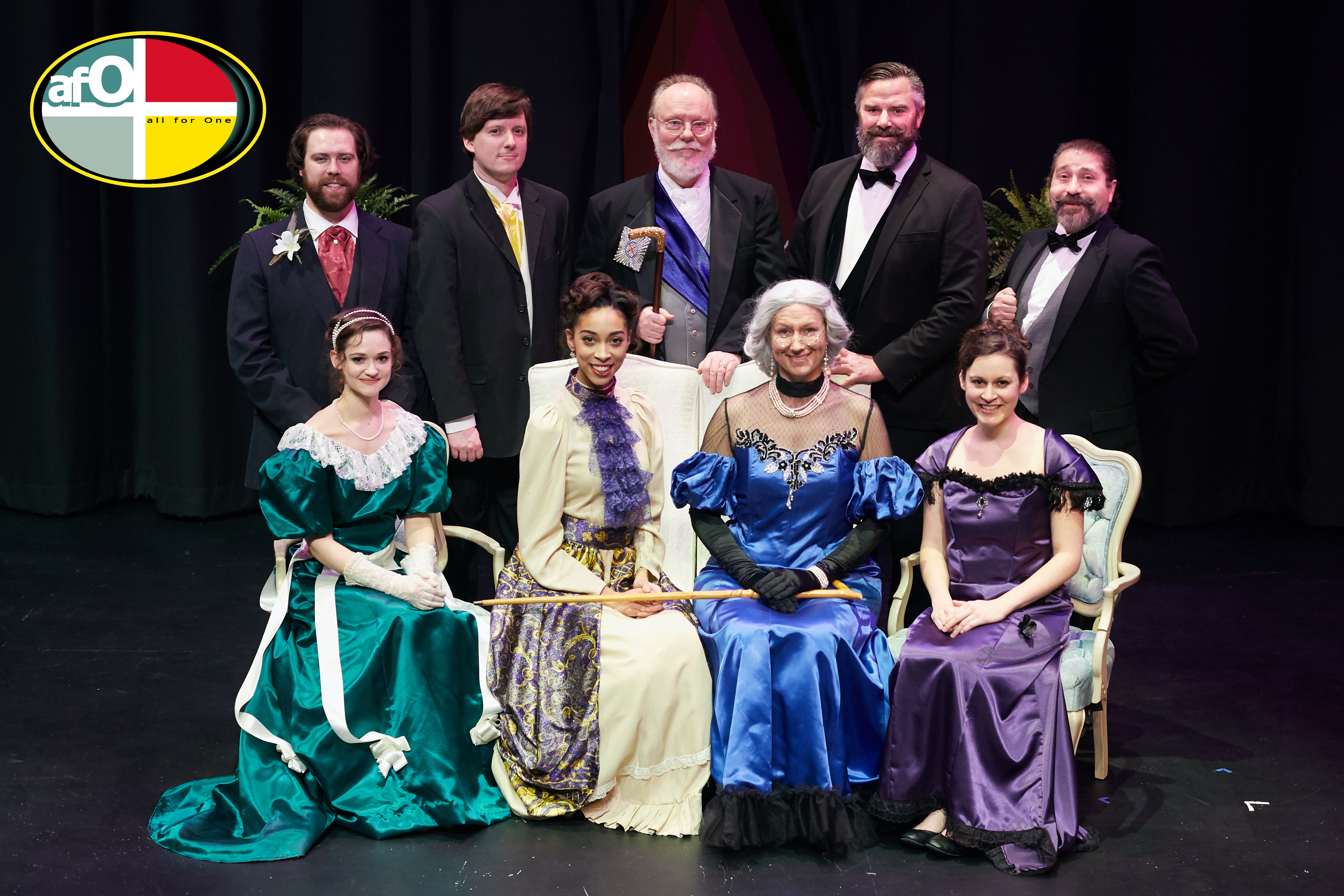Dramaturgy: An Ideal Husband

Oscar Wilde (1854-1900) was an Irish-born poet, novelist and playwright, best known for his daring psychological thriller/morality tale, The Picture of Dorian Gray, and his hilarious but insubstantial comedy play, The Importance of Being Earnest.
Wilde is widely acknowledged to have had a genius intellect. He spoke and read several languages and took double first class honors at Oxford (roughly equivalent to earning two simultaneous bachelor’s degrees, magna cum laude). He read widely and deeply, and loved the Classics, especially Greek literature. He also exhibited a lifelong fascination with the Catholic Church, read the Bible and St. Augustine while in jail, and requested a priest to administer Last Rites on his death bed.

Our choice of An Ideal Husband as our romantic comedy this season was based on several factors: the play is in the public domain, it was a popular and well-made feature film (1999) starring Cate Blanchett, and Oscar Wilde has great name recognition.
Beyond these superficial reasons, we were struck by the depth of feeling and truth in many lines of the script. Somewhat to our surprise, there seem to be strong Judeo-Christian themes running through the play. Consider some of these lines:
“It can never be necessary to do what is not honorable…”
“Power is nothing in itself. It is power to do good that is fine.”
“Life cannot be understood without much charity, cannot be lived without much charity.”
“Nobody is incapable of doing a foolish thing. Nobody is incapable of doing a wrong thing.”
“Life is never fair, Robert. And perhaps it is a good thing for most of us that it is not.”
“It is not the perfect but the imperfect who have need of love. It is when we are wounded by our own hands…that Love should come to cure us.”
Although the characters seldom mention God, and seem generally not to understand the full weight of what they are saying, one wonders whether Wilde himself was wrestling with these themes of brokenness and forgiveness, of humankind’s fallibility and need for Love’s cure.
An Ideal Husband is the most serious of Wilde’s society comedies, and the most “traditional”. Cynically, one might surmise that he wrote with one eye on the box office, knowing what would sell with the audiences of the day. Nonetheless, he has written a piece which rings true and still has much to say to us now about the cost of lost integrity, the value of trust, and the power of forgiveness.

In style, this script is somewhat a Comedy of Manners, a literary style which depicts and often satirizes the manners and customs of high society. Certainly much of the comedic value of the piece is somewhat satirical, but Wilde seems to ask us to take very seriously the central plot arc: will the Chilterns’ marriage survive the revelation of his long-ago act of unethical politics? We chose to treat this narrative and these characters with the gravitas they deserve.
Wilde is fond of epigraphs and paradoxical* statements, although they are largely hollow examples of wit. It is when the characters—in particular Lord Goring—drop their posing and speak honestly, that we hear words of substance.
A note on our version of the script: when a piece of literature enters public domain, it becomes permissible to not only publish or perform it without paying royalties, but to alter it as one sees fit. Initially, all the cuts we made to our edition of the script were to eliminate excess verbiage, to cut references which are out-of-date or too obscure, and to take away what often seemed unnecessarily sexist comments—from both men and women.
If one watches two well-known film versions of An Ideal Husband, one will see more drastic changes. A BBC version from 1969 is quite faithful to the original, with cuts only for length—until the final act, which is shortened out of all recognition, perhaps again in the interest of time. The better-known feature film version from 1999 takes more liberties with the plot, omitting the brooch/bracelet plot device all together. It does, however, insert an idea which this cast has embraced: It acknowledges that Gertrude Chiltern is also a flawed human being—not the saint her husband insists that she is. This is a plot point which has bothered us throughout the rehearsal process. Eventually, actress Corrie Taylor (Lady Chiltern) and I made some alterations to lines late in the final act of our play, feeling that this is a more honest and satisfying way to conclude the arc of this couple’s relationship.

SOME QUOTES OF WILDE from An Ideal Husband:
“Questions are never indiscreet. Answers sometimes are.”
“Women have a wonderful instinct about things. They can discover everything except the obvious.”
“Everybody one meets is a paradox nowadays. It is a great bore. It makes society so obvious.”
“I never smoke. My dressmaker wouldn’t like it, and a woman’s first duty in life is to her dressmaker, isn’t it? What the second duty is, no one has as yet discovered.”
SOME MISCELLANEOUS QUOTES from the writings of G.K. Chesterton:
“The true soldier fights not because he hates what is in front of him, but because he loves what is behind him.”
“There are no uninteresting things, only uninterested people.”
“The Christian ideal has not been tried and found wanting. It has been found difficult, and left untried.”
“To have a right to do a thing is not at all the same as to be right in doing it.”

This Post Has 0 Comments